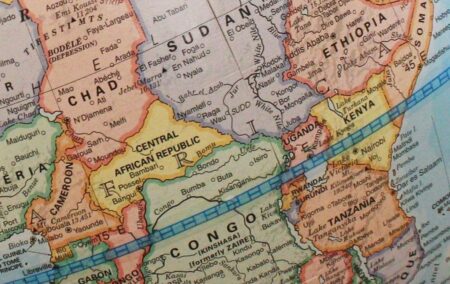South Africa emerges as the odd country out in a new survey of Africa’s youth which shows high levels of confidence in the continent’s future in countries to the north.
The African Youth Survey 2020, conducted by the Ichikowitz Family Foundation, captures the feelings and attitudes of the region’s largest demographic group, the youth, and reinforces what has been described as an emerging Afro-optimism trend.
The survey draws on 4 200 face-to-face interviews in the first half of 2019 with Africans aged between 18 and 24.
The report on the survey defines Afro-optimism as the confidence of young Africans in the potential of what has been called the ‘African Century’ for delivering improvements in their lives. It notes that two thirds of young Africans believe the ‘African Century’ is upon us. The majority anticipate their living conditions improving over the next two years, and many are hopeful of efforts to fight corruption and gain peace in the coming years.
But the figures show fewer young South Africans share this positive outlook.
The future is viewed positively by 92% of respondents in Rwanda, 62% in Ghana and 58% in Ethiopia. All three rank among the fastest-growing economies in the world. However, in South Africa – which has experienced sluggish growth since 2014 – less than half (49%) viewed the future positively.
On the question, ‘Will your standards of living improve in the next two years?’, the sizeable 74% of South Africans who believed living conditions would improve is nevertheless much lower than the levels of optimism in countries such as Senegal (92%), Rwanda (90%) and the Republic of the Congo (89%).
Overall, 63% of respondents believed that African countries should come together to find common solutions. Only 46% of South African youth shared this view. Zimbabwe was the only country to rank lower than South Africa on this sentiment.
On the statement, ‘My country has a moral obligation to help refugees from neighbouring countries regardless of their impact’, 86% in Senegal and 82% in Rwanda agreed. Significantly, World Bank figures show Senegal’s unemployment rate was under 10% in 2017, while Rwanda’s unemployment rate stood at 17% in the same year. By contrast, South Africa’s official unemployment rate that year was 27% – which could explain why South African youth are the least likely to welcome foreigners whom they view as competition for jobs. Young South Africans were also the most likely to support the statement that refugees have a negative impact on the country and should be sent back to their home country.
Entrepreneurs are more likely to be based in Malawi, Senegal and Togo than anywhere else in Africa. The findings showed that 90% of young people in Malawi intend to start a business in the next five years, 88% in Senegal and 90% in Togo. However, just 47% of young people in South Africa intend to start a business in the next five years, making young South Africans the least entrepreneurial among the countries tested.
Respondents were also asked whether they had an idea for a business that offered social returns. A majority (63%), agreed, with Togo emerging as having the highest levels of social entrepreneurialism in the sample (81%), followed by Senegal (73%) and Nigeria (71%). Again, South Africa lagged behind, with 54%.
IRR analysts say the findings make it clear that South Africa is not as optimistic as the rest of the continent, and not surprisingly, since many of the country’s ills stem from policies that drive away much-needed foreign investment. The lack of political will to implement reforms is only worsening the social and economic environment in the country.
They note that, while South Africa used to be a continental leader, it is now an increasingly pessimistic, inward-looking and stagnating country. They suggest South Africa should swallow its pride and learn from African countries such as Ethiopia – currently embarked on a massive privatisation drive, in contrast to South Africa’s determination to preserve South African Airways as a state-run entity – and Rwanda, dubbed the ‘Singapore of Africa’ for its high economic growth rates.

